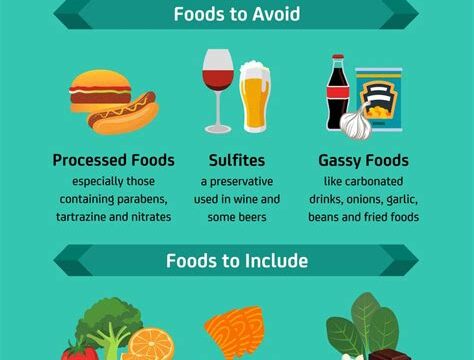Understanding Asthma and its Symptoms
Asthma is a chronic disease that affects the airways in the lungs, making it difficult to breathe. It is characterized by recurring episodes of wheezing, shortness of breath, chest tightness, and coughing. These symptoms vary from person to person and can range from mild to severe. Understanding asthma and its symptoms is crucial for proper management and control of the condition.
There are several key symptoms of asthma that individuals should be aware of. Firstly, wheezing is a common sign and is characterized by a whistling or squeaky sound when breathing. Shortness of breath is another symptom, where individuals may feel like they are unable to get enough air into their lungs. Chest tightness is also a common sensation experienced by asthmatics, which can feel like a heavy weight on the chest. Lastly, coughing, especially during the night or after physical activity, can also be an indication of asthma.
The exact cause of asthma is not fully understood, but it is believed to be a combination of genetic and environmental factors. Certain triggers can worsen asthma symptoms or even lead to an asthma attack. Common triggers include allergens such as pollen, pet dander, and dust mites, as well as respiratory infections, exercise, cold air, and certain medications. It is important for individuals with asthma to identify and avoid their triggers to prevent exacerbations.
The Role of Nuts in Asthma Management
Nuts, often recognized for their various health benefits, play an essential role in the management of asthma. Asthma, a chronic respiratory condition, affects millions of individuals worldwide. It is characterized by inflammation and narrowing of the airways, resulting in symptoms such as wheezing, coughing, and shortness of breath. While medications and lifestyle changes are typically recommended for asthma management, incorporating nuts into the diet can provide additional support and contribute to better asthma control.
One of the reasons nuts are beneficial for asthma management is their high content of omega-3 fatty acids. These healthy fats have anti-inflammatory properties, which can help reduce the inflammation in the airways associated with asthma. Omega-3 fatty acids have been shown to decrease the production of certain inflammatory substances in the body, thereby alleviating symptoms and improving lung function. Nuts such as walnuts, flaxseeds, and chia seeds are particularly rich sources of omega-3 fatty acids and can be easily incorporated into meals and snacks.
Furthermore, nuts are packed with essential vitamins and minerals that support overall lung health. Vitamin E, found abundantly in nuts like almonds and hazelnuts, is known for its antioxidant properties. Antioxidants help protect the cells in the lungs from damage caused by free radicals, reducing the risk of respiratory problems and promoting better asthma management. Additionally, nuts are a good source of magnesium, a mineral that plays a role in relaxing the muscles of the airways and facilitating easier breathing.
Incorporating nuts into an asthma-friendly diet can be done in a variety of ways. They can be enjoyed as a standalone snack or used as toppings for salads, yogurts, or oatmeal. Nut butters, such as peanut butter or almond butter, can be spread on whole grain bread or added to smoothies for a nutritious boost. It is important to note that while nuts offer numerous health benefits, not all nuts may be suitable for every individual with asthma. Some individuals may have allergies to certain types of nuts, which can trigger asthma symptoms. Thus, it is crucial to enjoy nuts in moderation and be mindful of any potential allergies.
Benefits of Nuts for Asthma Management:
| Nutritional Composition | Anti-inflammatory Properties |
|---|---|
| Omega-3 fatty acids: Help reduce inflammation in the airways. | Vitamin E: Acts as an antioxidant, protecting lung cells from damage. |
| Magnesium: Supports muscle relaxation in the airways, promoting better breathing. |
In conclusion, nuts can play a valuable role in the management of asthma. Their rich nutritional composition, anti-inflammatory properties, and potential benefits for asthma control make them a great addition to an asthma-friendly diet. However, it is essential to be mindful of any allergies and incorporate nuts in moderation. Consult with a healthcare professional or a registered dietitian to determine which nut types are suitable for your specific needs and to ensure optimal asthma management.
Nutritional Composition of Nuts and Asthma
Nuts are not only delicious but also packed with essential nutrients that can support overall health. When it comes to managing asthma, understanding the nutritional composition of nuts becomes crucial. Nuts are a rich source of various vitamins, minerals, and healthy fats that can potentially benefit individuals with asthma.
First and foremost, nuts are known for their high protein content. Protein plays a crucial role in repairing and building tissues, and it is especially important for individuals with asthma as they may experience inflammation and damage in their airways. Including protein-rich nuts like almonds, pistachios, and walnuts in your diet can provide the necessary building blocks for repairing damaged tissues in the respiratory system.
In addition to protein, nuts are also rich in healthy fats, particularly monounsaturated and polyunsaturated fats. These fats have anti-inflammatory properties, which can be beneficial for individuals with asthma. Chronic inflammation in the airways is a common feature of asthma, and consuming foods that help reduce inflammation can potentially improve airway function and control symptoms. Nuts like almonds, walnuts, and pecans are excellent sources of these healthy fats.
- Almonds: Almonds are a great source of vitamin E, magnesium, and calcium. Vitamin E acts as an antioxidant, protecting the lungs from oxidative damage, while magnesium helps relax the muscles surrounding the airways. Calcium is essential for the proper functioning of smooth muscle cells in the airways.
- Walnuts: Walnuts are rich in omega-3 fatty acids, which possess anti-inflammatory properties. They also contain vitamin E and magnesium.
- Pecans: Pecans are a good source of vitamin E and magnesium. They also provide fiber, which is beneficial for maintaining a healthy digestive system.
Furthermore, nuts contain a variety of vitamins and minerals that can support overall lung health. Vitamin C, found in nuts like pistachios, almonds, and cashews, has antioxidant properties and can help reduce the risk of respiratory infections. Selenium, an essential mineral present in Brazil nuts, serves as a powerful antioxidant and supports immune function.
Incorporating nuts into your daily diet can be a simple and effective way to boost your nutritional intake and potentially improve asthma management. However, it is important to note that nuts can be allergenic for some individuals. If you have a known nut allergy, it is crucial to avoid consuming nuts and consult with a healthcare professional for suitable alternatives.
In conclusion, the nutritional composition of nuts provides a wide array of benefits for individuals with asthma. From their protein content to healthy fats and various vitamins and minerals, nuts can play a valuable role in supporting lung health and managing asthma symptoms. Remember to enjoy nuts in moderation and be mindful of any allergies or sensitivities you may have.
Anti-inflammatory Properties of Nuts
Nuts are not only a tasty and convenient snack, but they also offer numerous health benefits. One of the key benefits of nuts is their anti-inflammatory properties. Inflammation is a natural response of the body to injury or infection, but chronic inflammation can contribute to the development of various diseases, including asthma. Incorporating nuts into your diet can help combat inflammation and potentially improve asthma control.
Research has shown that several types of nuts, including almonds, walnuts, and pistachios, contain compounds that have anti-inflammatory effects. These compounds, such as polyphenols and omega-3 fatty acids, help to decrease inflammation in the body. By reducing inflammation, nuts may have a positive impact on asthma symptoms and overall lung function.
In addition to their anti-inflammatory properties, nuts are also rich in nutrients that are beneficial for asthma management. They are a good source of vitamins, minerals, and antioxidants, which play a vital role in supporting lung health. Some of the key nutrients found in nuts include vitamin E, magnesium, zinc, and selenium. These nutrients help strengthen the immune system, reduce oxidative stress, and promote respiratory health.
When incorporating nuts into your asthma-friendly diet, it’s important to choose the right types of nuts. Not all nuts are created equal in terms of their nutritional composition and potential benefits for asthma control. While all nuts offer some anti-inflammatory properties, certain types, such as almonds and walnuts, are especially rich in these compounds. It’s recommended to include a variety of nuts in your diet to ensure you’re receiving a wide range of nutrients.
Potential Benefits of Nuts for Asthma Control
When it comes to managing asthma, incorporating certain foods into your diet can have a positive impact on your symptoms. One such food group that has shown potential benefits for asthma control is nuts. Nuts are not only delicious but also packed with nutrients that can support respiratory health. In this blog post, we will explore the potential benefits of nuts for asthma control and how you can incorporate them into your diet.
Rich in Magnesium: Nuts, such as almonds, cashews, and peanuts, are excellent sources of magnesium. This mineral plays a crucial role in relaxing the muscles around the airways and promoting better airflow. Studies have suggested a link between low magnesium levels and asthma severity, making nuts a valuable addition to an asthma-friendly diet.
Antioxidant Powerhouses: Another significant benefit of nuts for asthma control is their high antioxidant content. Antioxidants help protect the body against oxidative stress, which can trigger inflammation and worsen asthma symptoms. Walnuts, for example, are rich in antioxidants like polyphenols and omega-3 fatty acids that have anti-inflammatory properties.
| Nut Type | Recommended Daily Intake |
|---|---|
| Almonds | 1-2 servings (23-46 nuts) |
| Walnuts | 1 serving (14 halves) |
| Cashews | 1-2 servings (16-32 nuts) |
| Peanuts | 1-2 servings (28-56 nuts) |
High in Healthy Fats: Nuts are also a great source of healthy fats, particularly monounsaturated and polyunsaturated fats. These fats can help reduce inflammation in the body and support optimal lung function. Including a moderate amount of nuts in your diet can be beneficial for asthma control, as long as you consume them in moderation.
In conclusion, nuts offer potential benefits for asthma control due to their magnesium content, antioxidant properties, and healthy fats. However, it’s important to note that individual reactions to specific nuts may vary, and some individuals may be allergic to certain types of nuts. If you have any food allergies or concerns, it’s best to consult with a healthcare professional or allergist before making any significant changes to your diet. By incorporating nuts into an asthma-friendly diet, you may experience improved respiratory health and better control over your asthma symptoms.
Incorporating Nuts into an Asthma-Friendly Diet
Nuts are not only a delicious and versatile snack, but they can also be a valuable addition to an asthma-friendly diet. Incorporating nuts into your daily meals can offer numerous health benefits, including potential benefits for asthma control. In this blog post, we will explore the different ways you can include nuts in your diet to enhance your overall well-being.
One of the key nutrients found in nuts that can be particularly beneficial for asthma patients is magnesium. Magnesium has been known to have bronchodilator properties, which means it can help relax the muscles of the airways and improve breathing. Including nuts such as almonds, cashews, and pistachios in your diet can provide a good amount of magnesium and contribute to better asthma management.
In addition to magnesium, nuts are also rich in omega-3 fatty acids, which have anti-inflammatory properties. Asthma is an inflammatory condition, and incorporating foods that can help reduce inflammation can be incredibly beneficial. Walnuts, flaxseeds, and chia seeds are excellent sources of omega-3 fatty acids and can be easily incorporated into your meals. Consider sprinkling them over salads, adding them to smoothies, or using them as a topping for yogurt or oatmeal.
When it comes to incorporating nuts into an asthma-friendly diet, it’s important to consider potential allergies and precautions. While nuts can offer numerous health benefits, some individuals may have allergies to certain types of nuts. It’s important to identify any allergies you may have and choose nuts that are safe for consumption. Always consult with your healthcare provider or allergist to determine which nuts are suitable for you.
Incorporating nuts into your diet can be as simple as snacking on a handful of mixed nuts or adding them to your favorite recipes. You can include nuts in your breakfast by sprinkling them over cereal or incorporating them into your morning smoothie. For lunch and dinner, try adding chopped nuts to salads, stir-fries, or pasta dishes for added crunch and flavor. You can also blend nuts into nut butter and use it as a spread or dip.
In conclusion, nuts can be an excellent addition to an asthma-friendly diet. They provide key nutrients such as magnesium and omega-3 fatty acids, which can help improve asthma control and reduce inflammation. However, it’s important to be mindful of any allergies or precautions associated with nuts. By incorporating a variety of nuts into your meals and snacks, you can enjoy the potential benefits they offer and support your overall respiratory health.
Recommended Nut Types for Asthma Patients
When it comes to managing asthma, diet plays a crucial role in supporting overall lung health. Incorporating certain types of nuts into the diet can provide various health benefits for asthma patients. Nuts are rich in essential nutrients and natural compounds that can help reduce inflammation, support immune function, and improve respiratory health. In this blog post, we will explore some of the recommended nut types for asthma patients.
1. Almonds: Almonds are one of the top nut choices for asthma patients. They are packed with vitamin E, which has antioxidant properties and may help reduce inflammation in the airways. Additionally, almonds are a good source of magnesium, an essential mineral that supports lung function and helps relax the airway muscles.
2. Walnuts: Walnuts are a great addition to an asthma-friendly diet. They are rich in omega-3 fatty acids, which have been shown to have anti-inflammatory effects. These fatty acids may help reduce the severity and frequency of asthma symptoms. Walnuts also contain vitamin E and antioxidants that support respiratory health.
3. Brazil nuts: Brazil nuts are known for their high selenium content. Selenium is a trace mineral that plays a role in reducing inflammation and supporting immune function. Including Brazil nuts in the diet may help improve lung function and reduce the risk of asthma exacerbations.
4. Pistachios: Pistachios are a delicious and nutritious nut option for asthma patients. They contain antioxidants, such as lutein and zeaxanthin, which have been linked to improved lung function. Pistachios also provide a good amount of vitamin E, magnesium, and fiber, making them a beneficial choice for respiratory health.
5. Cashews: Cashews are another nut type that can be beneficial for individuals with asthma. They are rich in magnesium, which can help relax the airways and improve lung function. Cashews also provide a good source of protein and healthy fats, making them a satisfying snack option that supports overall lung health.
| Nut Type | Nutritional Composition | Potential Benefits for Asthma |
|---|---|---|
| Almonds | Rich in vitamin E and magnesium | Reduces inflammation and supports lung function |
| Walnuts | High in omega-3 fatty acids and antioxidants | Reduces severity and frequency of asthma symptoms |
| Brazil nuts | Excellent source of selenium | Reduces inflammation and supports immune function |
| Pistachios | Contain antioxidants and vitamin E | Improves lung function and respiratory health |
| Cashews | High in magnesium and healthy fats | Relaxes airways and supports overall lung health |
It’s important to remember that individual tolerances and allergies may vary, so it’s crucial to consult with a healthcare professional or allergist before incorporating nuts into your diet, especially if you have a known nut allergy. Additionally, portion control is key as nuts are calorie-dense. Including a variety of nuts in moderation can be a valuable addition to an asthma-friendly diet and help support respiratory health.
Precautions and Allergies: Nuts and Asthma
Nuts are often touted as a beneficial component of a healthy diet, but for individuals with asthma, certain precautions need to be taken. While nuts can provide various nutritional benefits and potentially aid in asthma control, it is crucial to be aware of potential allergies and take necessary measures to ensure a safe consumption. In this blog post, we will explore the precautions that individuals with asthma should consider when incorporating nuts into their diet, as well as the potential allergenic properties of nuts.
Allergies and Asthma:
Asthma is a chronic respiratory condition characterized by inflammation and narrowing of the airways, which can lead to breathing difficulties. While nuts are generally a healthy food choice, they are also a common allergen that can trigger allergic reactions in certain individuals. Nut allergies tend to be more prevalent in children and can range from mild to severe, even causing life-threatening anaphylactic reactions. Therefore, individuals with asthma should be cautious when consuming nuts and be aware of any potential allergic reactions.
Taking Precautions:
If you have asthma and wish to include nuts in your diet, there are several precautions you can take to minimize the risk of an allergic reaction. First and foremost, it is essential to identify any specific nut allergies you may have. Your healthcare provider can perform allergy tests to determine if you are allergic to any types of nuts. Once you are aware of your allergies, it is crucial to read food labels carefully and avoid products that contain nuts or may have been processed in facilities that handle nuts. This attention to detail can help prevent accidental exposure to allergens that could trigger an asthma attack.
Alternative Options:
If you have a nut allergy or prefer to err on the side of caution, there are alternative options available to reap similar nutritional benefits. Seeds, such as pumpkin seeds or sunflower seeds, can be excellent substitutes for nuts. They offer comparable nutritional profiles and can be incorporated into an asthma-friendly diet. Additionally, there exist various other food sources that provide similar essential nutrients found in nuts, including beans, fish, and dark leafy greens. By diversifying your diet, you can still obtain the necessary nutrients without the risk of triggering an allergic reaction.
While incorporating nuts into an asthma-friendly diet can be advantageous for some individuals, it is essential to approach it with caution. Understanding your allergies and taking necessary precautions can help ensure safe consumption and minimize the chances of triggering an asthma attack. By making informed choices and exploring alternative options, individuals with asthma can still enjoy a diverse and nutritious diet while managing their condition effectively.
Frequently Asked Questions
Q: What is asthma and what are its symptoms?
A: Asthma is a chronic respiratory condition characterized by inflamed airways and narrowed bronchial tubes, leading to difficulty in breathing. Common symptoms of asthma include wheezing, shortness of breath, coughing, and chest tightness.
Q: How do nuts play a role in asthma management?
A: Nuts, such as almonds, walnuts, and peanuts, can be beneficial for asthma management due to their nutritional composition. They contain omega-3 fatty acids, magnesium, and antioxidants, which have anti-inflammatory properties and may help reduce asthma symptoms.
Q: What is the nutritional composition of nuts and how does it relate to asthma?
A: Nuts are packed with essential nutrients, including healthy fats, protein, fiber, vitamins, and minerals. These nutrients can support overall lung health and reduce inflammation, potentially improving asthma control.
Q: Do nuts have anti-inflammatory properties that can benefit asthma patients?
A: Yes, nuts have been found to possess anti-inflammatory properties. Omega-3 fatty acids and antioxidants present in nuts can help reduce the inflammation in the airways, which is a key factor in asthma symptoms.
Q: What are the potential benefits of incorporating nuts into an asthma-friendly diet?
A: Including nuts in an asthma-friendly diet can provide numerous benefits. They can help alleviate inflammation, support lung health, enhance immune function, and provide a good source of essential nutrients to promote overall well-being.
Q: Which types of nuts are recommended for asthma patients?
A: Various types of nuts can benefit asthma patients. Almonds, walnuts, pistachios, and Brazil nuts are often recommended due to their nutritional profile. It’s important to choose unsalted and unflavored nuts, as additives can trigger asthma symptoms in some individuals.
Q: Are there any precautions or allergies to consider when it comes to nuts and asthma?
A: Yes, it’s crucial to be aware of any nut allergies before incorporating them into an asthma-friendly diet. Some individuals with asthma may also be allergic to certain nuts. It’s advisable to consult with a healthcare professional or allergist to determine which nuts are safe to consume.





